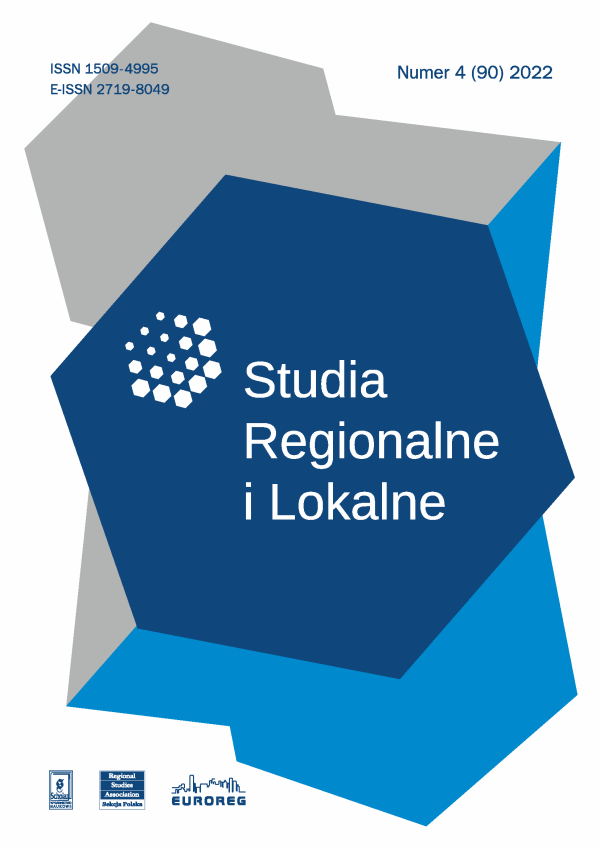Opublikowano w numerze
4(90)/2022

- Jakub Daněk, Filip HrůzaCooperate or Not To Cooperate? Czech Municipalities’ (De)Motivation as Experience for Other Countries with Space for the Intensification or Professionalisation of IMC[więcej]
- Oksana Kovzele, Ilze Kacane, Maija GrizanePerceptions and Attitudes Towards Festivities and their Celebration During the COVID-19 Pandemic: A Qualitative Case Study in the Latvian Context[więcej]
- Taras Vasyltsiv, Olha Levytska, Olexandr RudkovskyConsequences of the War for the Labour Market of the Carpathian Region of Ukraine: Priorities of Stabilisation Policy[więcej]
- Mykola Nazaruk, Volodymyr KhudobaRecreational Ecosystem Services of Environmental Protected Areas of Ukraine: Prospects and Implementation Obstacles[więcej]
- Nataliia Khoma, Ihor VdovychynAnti-war Actionism in the Urbanized Space: A Postmodern Approach to Asserting the Value of Peace[więcej]
- Sylwia Dołzbłasz, Andrzej RaczykStabilność współpracy transgranicznej w Polsce w wymiarze tematycznym i przestrzennym[więcej]


